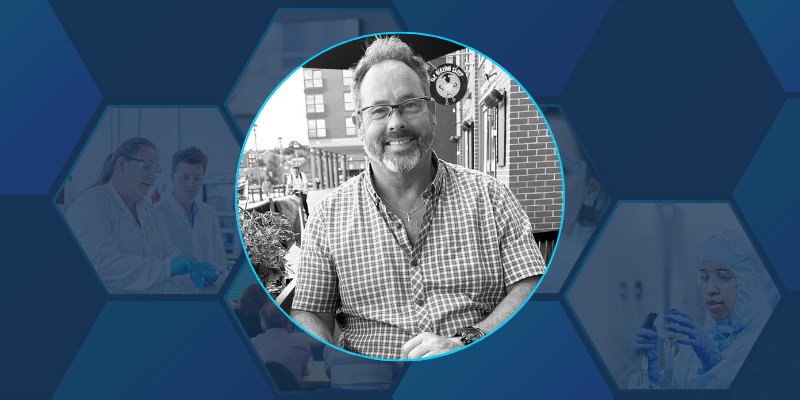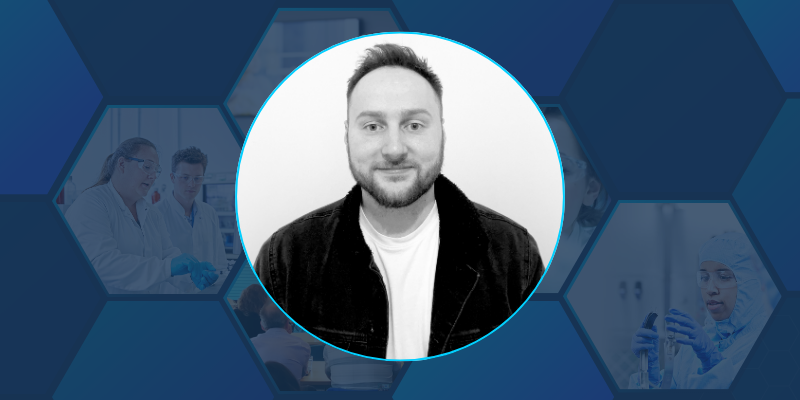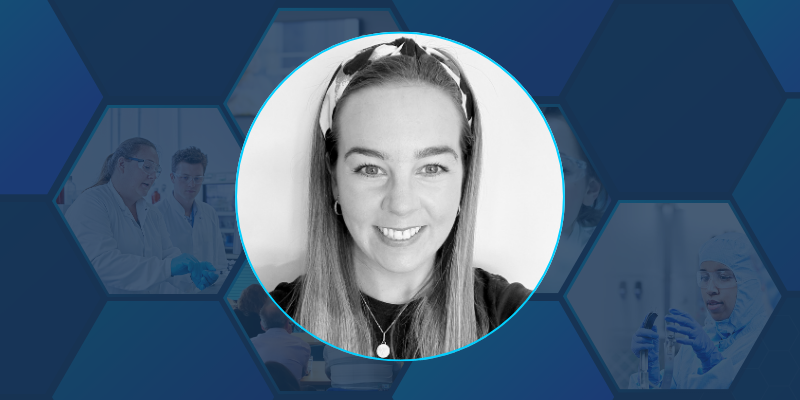Adrian Hurry works within Quotient Sciences' Environmental, Health & safety (EHS) department in Nottingham, UK. He discusses his carer with the company and what he enjoys the most about his role.
I’ve worked for Quotient Sciences for almost 20 years. I started as a Clinical Technician and always felt the opportunities are there to progress as far as you want to go.
-Adrian Hurry
What does an EHS Specialist do at Quotient Sciences?
My main responsibility is to ensure that the workplace is a safe environment for colleagues, contractors, volunteers, and visitors. I do this by promoting health and safety, monitoring areas to identify any hazards, investigating accidents and incidents, educating colleagues about risks, and taking necessary actions to prevent incidents occurring.
Describe a typical day in Quotient Sciences’ EHS department.
Typically, I would have a set plan for the day, and it often includes reviewing and updating policies or other EHS guidelines that we have at Quotient Sciences, writing and reviewing general risk assessments, COSHH (Control of Substances Hazardous to Health) assessments, and training new and existing colleagues. Other tasks can be unpredictable, like responding to incidents; these could be minor and easy to resolve, or require a formal approach to prevent a recurrence. I also spend a fair amount of time interacting with other departments to seek advice, solutions, and clarification as we are not experts in all fields, so most days are learning days for me.
How has your career progressed since joining the company?
I’ve worked for Quotient Sciences for almost 20 years. I started as a Clinical Technician and always felt the opportunities are there to progress as far as you want to go. I’ve been lucky to have experience working within other areas of the business and I know if I want to progress further, the company will provide loads of support to achieve this.
What experience did you have before you worked at Quotient Sciences?
I started my career and worked for several years in the building trade as a plumber. After leaving that profession, I briefly worked with the NHS and developed skills that were transferrable to my role in the clinic when I joined Quotient Sciences. I had no specific experience working in clinical research, but the company provided training to help me when I started initially as a Clinical Technician.
What learning or qualifications have you gained in this role?
It’s been a big learning curve and I’ve learnt so much in the two decades that I’ve been with the company. I’ve gained a couple of formal qualifications, such as IOSH Managing Safely and NEBOSH General Certificate in Occupational Health and Safety.
What do you enjoy most about your role? And what is most challenging?
Aside from talking, which I definitely enjoy and my role involves a lot of that, if I had to pick one thing it would be meeting people. Part of the reason I enjoy our new starter inductions, which are our first day introduction and training meetings set up for all new colleagues, is because I get to meet most people that join the company.
Sometimes it can be quite challenging to get colleagues to adopt changes, especially to new safety processes, but we're always looking for feedback to ensure that we're providing the best experience possible.
What advice would you give to someone applying for a role in your team?
Laugh at my “Dad jokes” and you are in! In all seriousness, though, the EH&S team at Quotient Science is a small team, and we all bounce ideas off of one another. Talk to any of us, and we can tell you all about the roles within our team. We work well and actively support each other across all the sites.
What do you like most about working at Quotient Sciences?
The people are what I enjoy the most about working with my team and across Quotient Sciences as a whole.



